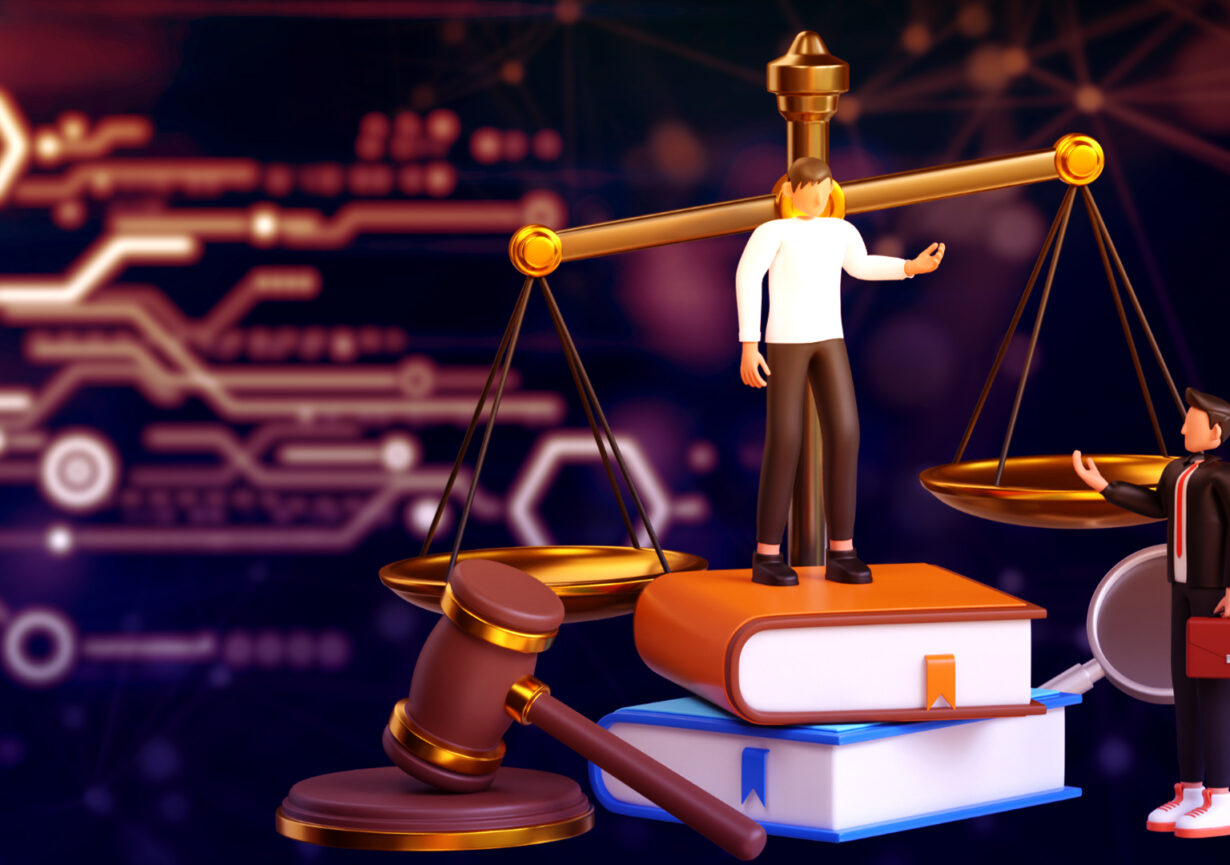- “Blockchain Technology’s Impact on the Legal Domain” examines how blockchain technology is changing the legal industry in a variety of ways, including document notarizations and smart contracts, as well as how it may one day reshape the judicial system.
- It explores the idea of smart courts and shows how blockchain technology can be used to safeguard evidence, guarantee transparency in courtroom proceedings, automate administrative tasks, and promote inter-court cooperation, ultimately reshaping the future of the legal system.
Blockchain stands out as one of the most paradigm-shifting ideas at a time of digital change. Understanding its underlying concepts and workings is crucial to realizing how revolutionary it may be for the legal system.
Impact of Blockchain Technology on the Legal Sector
The use of Blockchain technology has had a tremendous positive impact on both the legal and judicial systems. Blockchain has impacted several facets of the legal industry, including company registrations, criminal trials, dispute settlement, and document notarizations. In addition to law firm operations and public service records, blockchain has an impact on industrial groups, intellectual property rights, land registries, and property deeds.
However, despite its revolutionary potential, blockchain technology and its many uses are not currently governed by any laws in India. Instead, blockchain-related technologies are governed based on their sectoral uses by existing sector-specific authorities, including the Securities Exchange Board of India (SEBI), the Reserve Bank of India (RBI), and the Insurance Regulatory and Development Authority of India (IRDAI).
As digitalization advances, the legal profession has steadily embraced technology, which has improved efficiency and reduced mistakes in legal proceedings. Thanks to the work of the Supreme Court’s e-committee, headed by Hon’ble Justice DY Chandrachud, the COVID-19 epidemic further expedited the digitization of the legal business, from paper files to virtual court sessions.
Unlocking the Full Potential of Blockchain
Although technological use in the legal sector has advanced significantly, India has not yet completely embraced blockchain. Blockchain has already been implemented into the judicial systems of several nations, like Estonia, China, the United Kingdom, and others, ushering in the era of “e-justice.” In addition to cutting costs and time, this adoption improves security, openness, and authenticity, boosting public confidence in the legal system.
The blockchain technology, which is frequently linked to digital currencies like Bitcoin and Ethereum, has a wide range of uses. Its objective is to create a distributed, disintermediated, and decentralized technological environment. This compatibility between the blockchain’s architecture, its method of development, and its declared goals offers a strong argument for its adoption and careful consideration of its potential effects on society, the economy, and politics.
Indian blockchain and cryptocurrency
The legal standing of cryptocurrencies has generated discussion in India. In Internet and Mobile Association of India v. Reserve Bank of India, the Hon’ble Supreme Court of India decided that the RBI has the right to regulate virtual currencies in order to protect India’s economy. Through this ruling, services relating to cryptocurrencies might be offered by banks and other financial organizations under RBI regulation.
The classification of cryptocurrencies as securities, however, is still up for debate. While considering a legal framework for cryptocurrencies and ICOs (Initial Coin Offerings), SEBI and RBI have released recommendations. Some coins may fall under the definition of “securities” outlined in the Securities Contract (Regulation) Act, 1956.
Validity of Smart Contracts in Law
A possible route for the legal industry exists in smart contracts, which are lines of code on the blockchain that run by themselves based on predefined criteria. They make sure that contracts are transparent, secure, and effective. However, there are obstacles, such as the requirement for technical knowledge to draft and understand smart contracts.
Smart contracts in India must comply with the requirements of a valid contract as outlined in Section 10 of the Indian Contract Act, 1872 in order to be legally enforceable. Clarification and future enactment of legislation regarding smart contracts may be required.
Intellectual property rights and blockchain
The use of blockchain technology to intellectual property rights can simplify the administration of licensing and provide verifiable ownership records. The enforcement of IP rights can be improved, even in a worldwide environment, by storing information about the development, manufacturing processes, and sources of intellectual property on blockchain-based ledgers.
As the Foundation of Smart Courts, Blockchain
The idea of “Smart Courts’ ‘ is born in response to the opportunities and problems facing the legal industry. These digitized courts use blockchain technology to expedite and improve operations. Automation, data analytics, and digital platforms for hearings and document submissions are all priorities for smart courts.
Secure evidence, transparent case procedures, smart contract automation of administrative work, and inter-court cooperation are just a few of the ways that blockchain is used in Smart Courts. It is a useful instrument for preserving the integrity of the evidence and raising the credibility of electronic evidence and paperwork because of its unchanging and transparent character.
Conclusion: The Legal Sector in the Digital Age
Blockchain technology has the potential to revolutionize the judicial system both in India and throughout the world. Its implementation in the legal industry might improve security, openness, and efficiency, which would eventually increase public confidence in the legal system. To fully use the promise of blockchain and usher in a digital future for the legal realm, careful analysis and regulation are required as we negotiate the changing environment of technology and law.


Leave a Reply